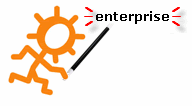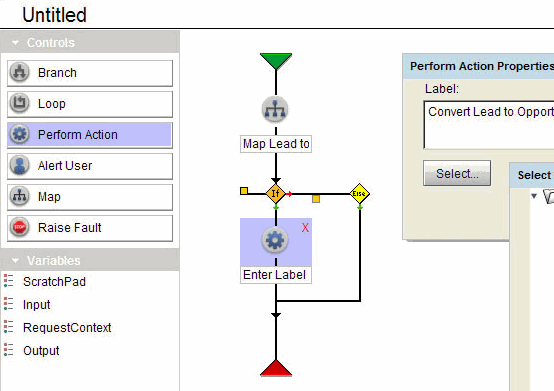Coghead: Web Applications for Dummies by Dummies
 There's been a buzz going around about a new web startup called Coghead. Heralded by Business 2.0 as one of the "innovations that could reorder entire industries," Coghead is lead by former Red Hat executive Paul McNamara and Extricity founder Greg Olsen. El Dorado Ventures, a Venture Capitalist firm, recently invested $2.3M in the company. According to McNamara,
There's been a buzz going around about a new web startup called Coghead. Heralded by Business 2.0 as one of the "innovations that could reorder entire industries," Coghead is lead by former Red Hat executive Paul McNamara and Extricity founder Greg Olsen. El Dorado Ventures, a Venture Capitalist firm, recently invested $2.3M in the company. According to McNamara,
Coghead will enable nonprogrammers to rapidly create their own custom business software
In other words, Coghead is the b*stard child of 4GL and Web 2.0; it's the end result of a careful mixture of myth and buzzword; and, I'm sure, it will play an important part in several upcoming The Daily WTF articles. Before we get into the details of Coghead, let's take a look back at the world of 4GL.
There's a bit of ambiguity surrounding what is and isn't a 4GL (Fourth Generation Language), so I'll stick with James Martin's characterization from his 1982 book, Application Development Without Programmers. The book's title should give you a good enough understanding of the goal of a 4GL: the ability to develop complex custom business software through the use of simple-to-use tools.
In the quarter-century since Application Development Without Programmers debuted, let's consider how far we've come on this goal: dBase, Clipper, FileMaker, and Access. It's a pretty far cry from what James Martin and the other 4GL dreamers had in mind. Sure, Jane in Accounting could easily use Microsoft Access to create custom software to manage her music collection, but ask her to develop the General Ledger in Access and you'll find your books in worse shape than Enron's and Tyco's combined.
There's a simple, common-sense reason why custom business software will always require programmers. It's the same reason that brickwork will always require a mason and why woodwork will always require a carpenter. No matter how complex and versatile a tool is, an experienced builder is always required to create something unique.
Like many other common-sense principles, the "software machine" is one that some programmers don't get. Be it with The Tool or The Customer Friendly System, these programmers believe they are so clever and so intelligent that they can program even themselves into obsolescence.
Some businesses don't get it, either. But they will eventually pay the price: the "mission critical" software they developed for themselves in Microsoft Access will become their albatross, costing time, opportunity, and, eventually, lots of money for real programmers to fix their mess.
And this is where we return to Coghead. You see, Coghead is merely another example of this arrogant ignorance, but this time it's web-based and enterprisey. That's right; unlike its desktop counterparts, Coghead is targeted towards big businesses, not small businesses and hobbyists:
"anyone who can code a simple Excel macro should have little trouble using Coghead to create even sophisticated enterprise apps like logistics trackers, CRM programs, or project management systems.
Even with a liberal application of AJAX, the fact that Coghead is web-based means that it's less functional and offers a poorer experience than its desktop equivalent. Not only that, but all data and business logic are left in the hands of a third party. That, in and of itself, is a good enough reason to avoid Coghead.
the Coghead web IDE
Twenty years ago, if you developed a dBase application, you "owned" it and knew that so long as you could find a MS-DOS 2.0 disk, your data and business logic were safe. If you developed a Coghead application, what would happen if Coghead went out of business? What if they upgrade their system and it breaks your application? What if you forget to pay the subscription fee and they delete your application? It just isn't worth the risk.
Some might argue that this negative analysis is a knee-jerk reaction to a threat. After all, Business 2.0 claims that Coghead will be a disruptor for "initially, custom software developers, but potentially almost all software-tool makers." But I'm not threatened by Coghead; I'm disappointed.
We've come a long way with software development in the past twenty-five years, from automated build processes to advanced integrated development environments. We've developed effective techniques for communicating with users and bringing them closer to the development process. Perpetuating the myth that programmers are an unnecessary part of the software development process does nothing but alienate users and frustrate them when the (programmer-developed) ÜberTool fails to deliver the results it promised.
##
UPDATE, Feb 19, 2009 -- and would you know it, CogHead is no more. And Access '97 still runs strong.
